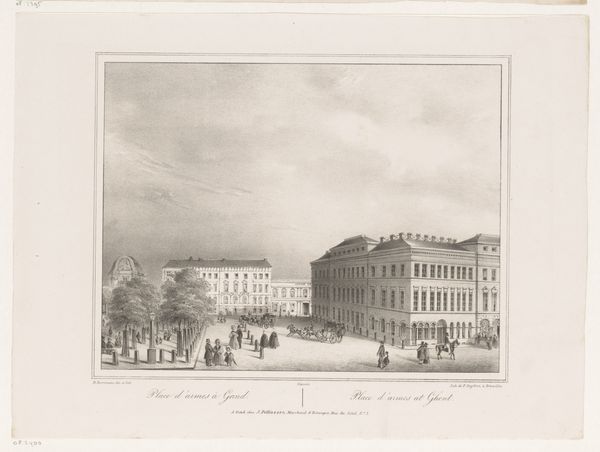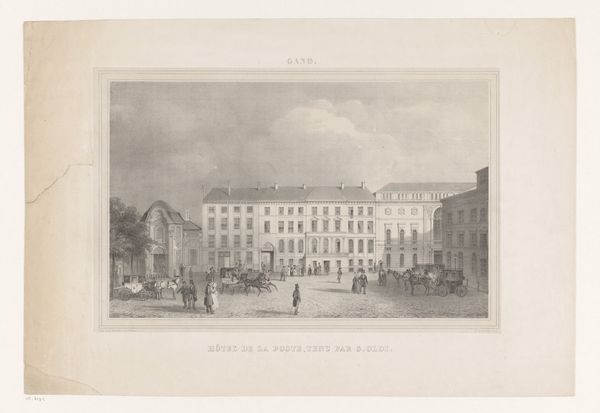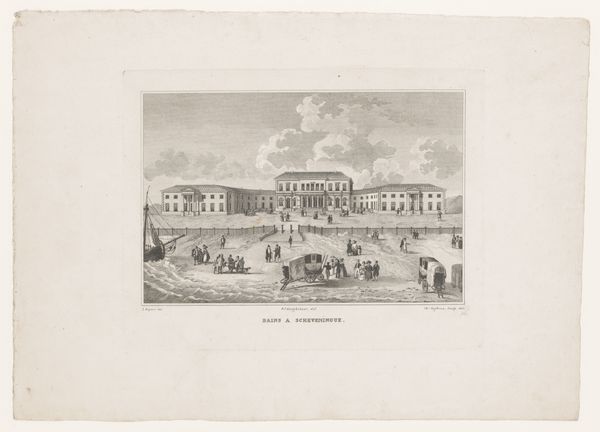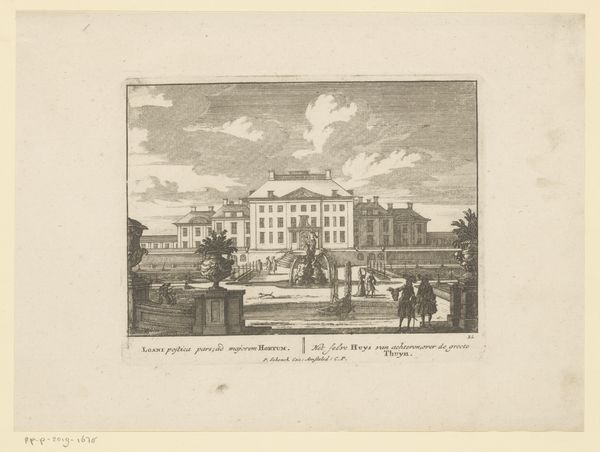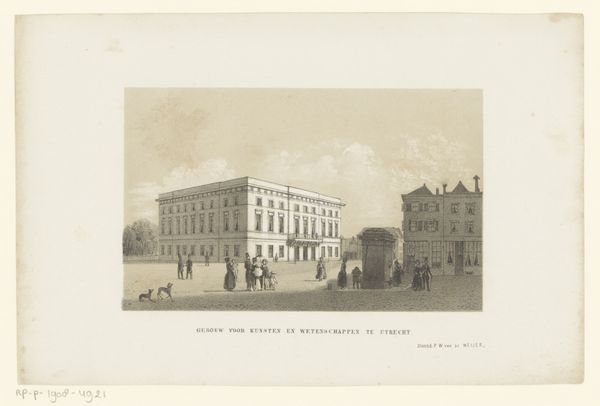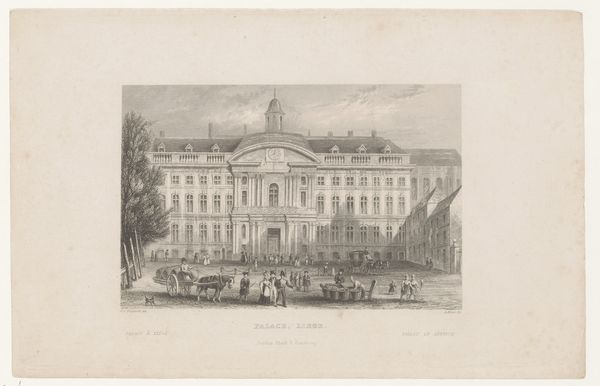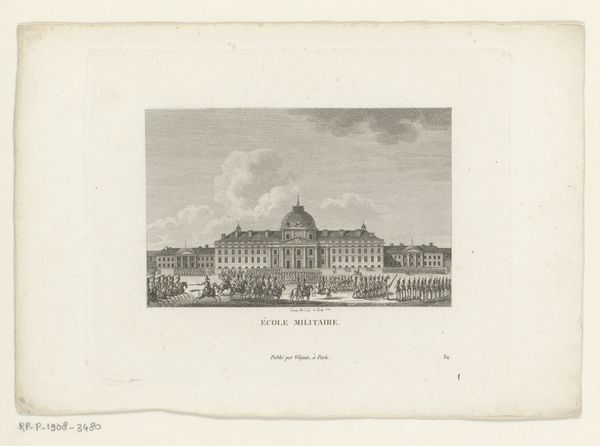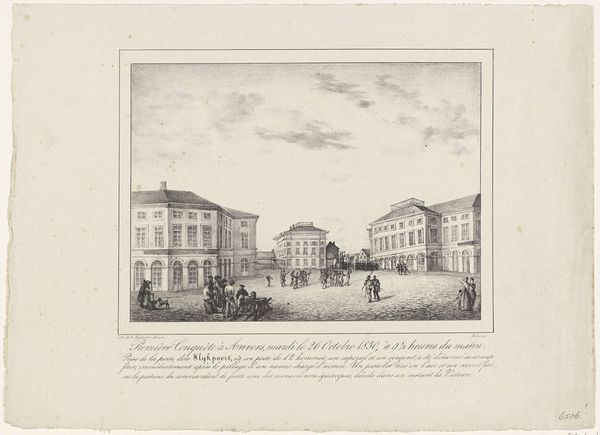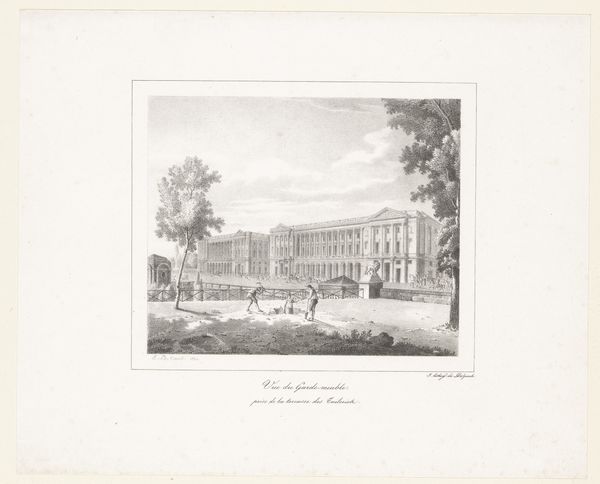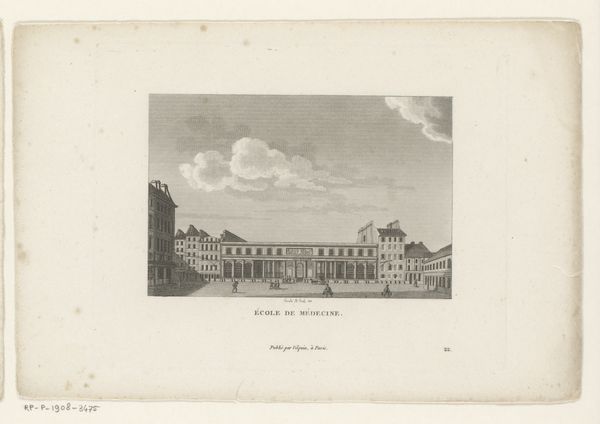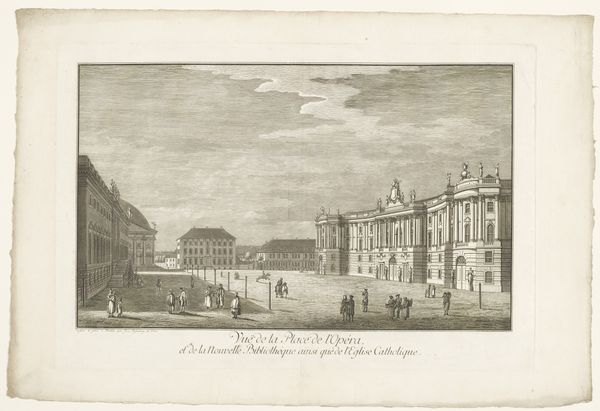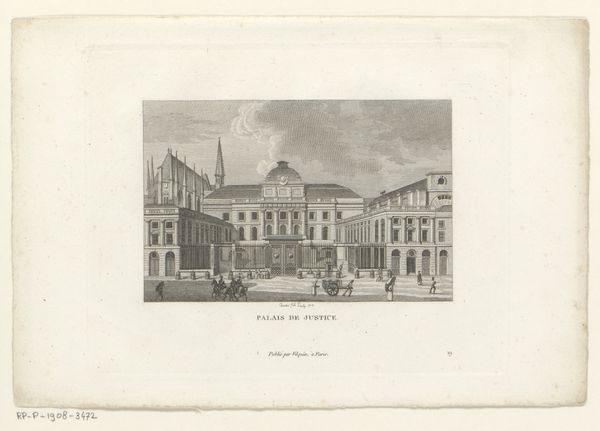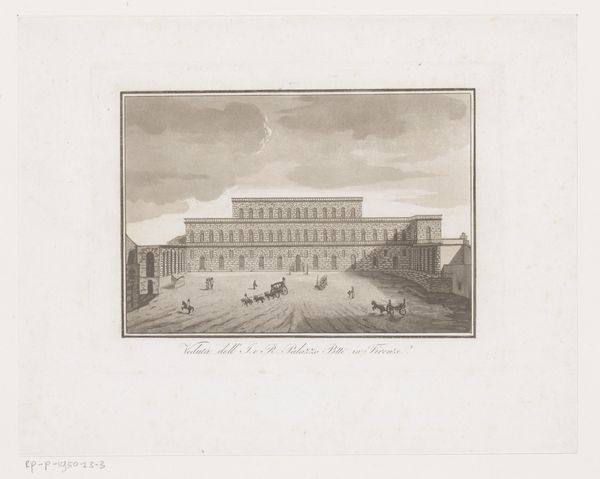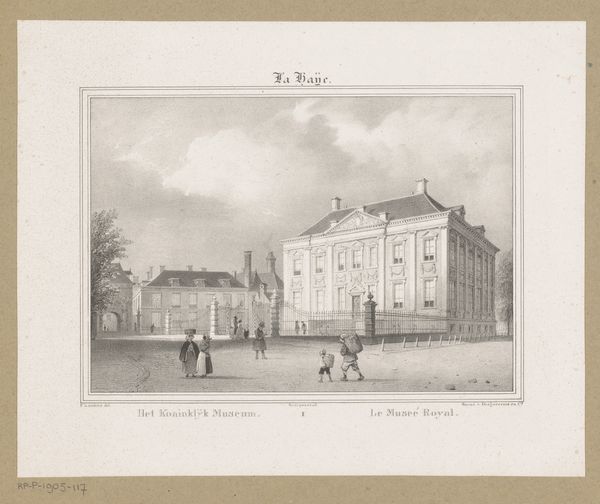
drawing, graphic-art, print, engraving, architecture
#
drawing
#
graphic-art
#
neoclacissism
# print
#
old engraving style
#
archive photography
#
old-timey
#
cityscape
#
engraving
#
architecture
Dimensions: height 275 mm, width 369 mm
Copyright: Rijks Museum: Open Domain
Henri Borremans created this view of the Casino in Gent using a technique called lithography. It’s a printmaking process that relies on the mutual repulsion of grease and water. The design was drawn with a greasy crayon onto a flat slab of limestone, then treated with acid. When the stone was inked, the ink only adhered to the greasy drawing. From this, multiple impressions could be pulled, resulting in editions of prints such as this one. The texture, weight, and form of the stone are all critical to this process. Lithography emerged as a relatively inexpensive means of mass production in the 19th century, fueling a boom in printed matter. It democratized image-making, putting it in the hands of a broader range of artists and consumers. The process reflects the social and economic shifts of the time, as industrialization transformed artistic production and consumption. This print isn't just a picture; it's a record of a changing world.
Comments
No comments
Be the first to comment and join the conversation on the ultimate creative platform.
